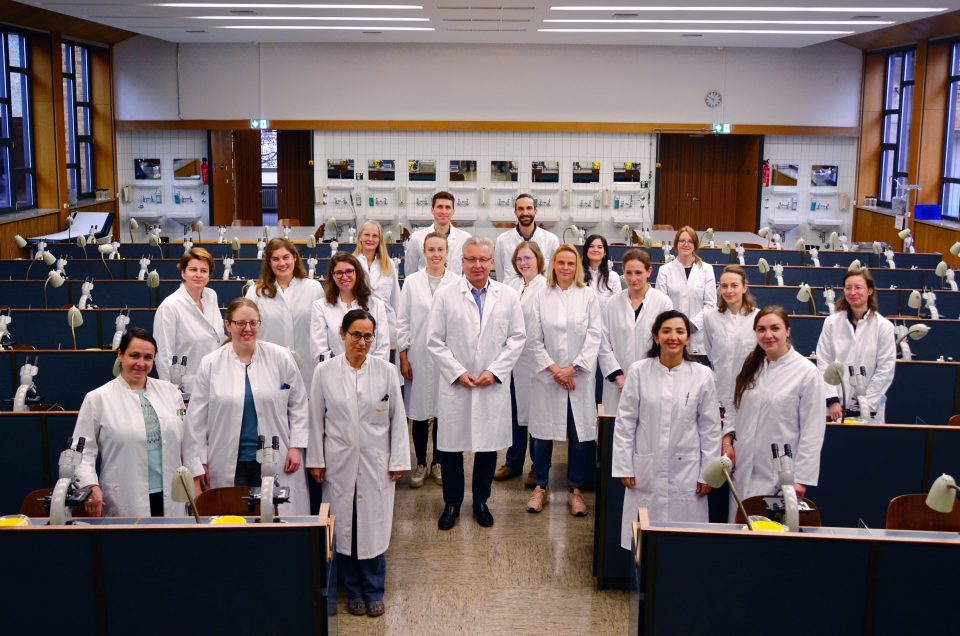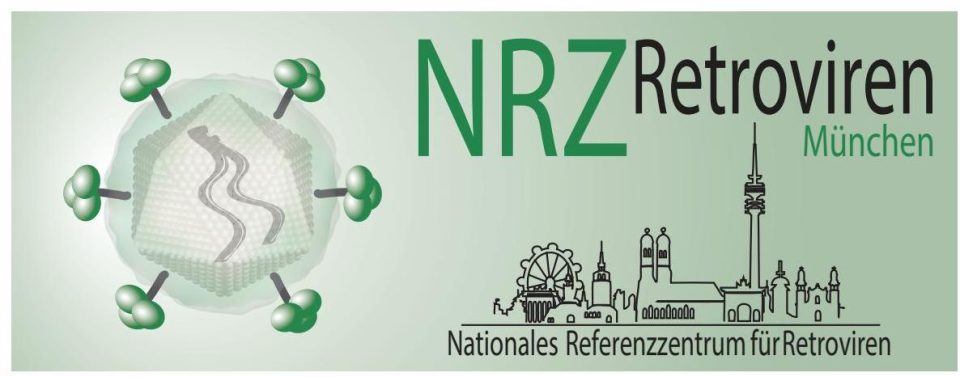Aktuelles
Diagnostics

Clinical Virology
We offer
Accredited and validated virological diagnostics
GMP-certified according to EU standard, testing laboratory according to §14 Abs.4 Nr.3 and § 20b AMG
Comprehensive range of tests including all relevant human pathogenic viruses
State-of-the-art test methods that are continuously adapted to the latest scientific findings
Optimal sample logistics for the performance of test evaluations and clinical studies (also examinations within the scope of the Tissue Act)
0172-8412626 for urgent examinations and consultations
Competent consultation on diagnostic and therapeutic issues
The close cooperation with the LMU Hospital influences the methodological focus of clinical virology. The main focus is on questions concerning the care of immunocompetent patients. This includes a large number of PCR methods developed “in house”.
For a long time, special attention has been paid to the investigation of resistance development during antiviral therapy. The development of a special evaluation software for HIV and hepatitis B resistance is part of this focus.
Diagnostics
National Reference Centre Helicobacter pylori
National Reference Centres (NRC) are designated by the Federal Ministry of Health in coordination with the Robert Koch Institute to monitor important infectious agents. Since 1 January 2017, the NRC for Helicobacter pylori has been located at the Max von Pettenkofer Institute of the LMU Munich under the direction of Prof. Dr. Sebastian Suerbaum. The NRZ is the point of contact for microbiological laboratories and treating physicians from all over Germany for questions on the diagnosis, therapy and epidemiology of H. pylori.
The NRZ also provides information for patients and other interested parties on its website. In addition to counselling, the NRZ also offers special microbiological diagnostics for H. pylori.
Helicobacter pylori
Helicobacter pylori is a Gram-negative rod-shaped bacterium. It infects the mucous membrane of the stomach in more than half of the world’s population and is therefore one of the most common bacterial infectious agents of all. The infection is usually acquired in childhood and persists for decades if not actively treated.
Infection with H. pylori always causes an inflammatory reaction of the stomach mucosa, which can be detected in a fine tissue examination of the stomach. However, it does not necessarily cause any symptoms; more than 80 % of those infected remain asymptomatic. However, secondary diseases can develop on the basis of H. pylori gastritis. The most important secondary diseases are
- Stomach ulcer
- Duodenal ulcer
- Stomach cancer (adenocarcinoma)
- Lymphoma of the stomach (MALT lymphoma)
Diagnostic evidence of H. pylori infection is usually obtained during a gastroscopy, where samples (biopsies) are taken and examined for H. pylori. It is also possible to detect an
H. pylori infection by a breath test or a stool test.
A vaccination against H. pylori is currently not available.
Therapy is carried out with a combination of antibiotics and acid secretion inhibitors. The aim of the therapy is the complete elimination of the pathogens from the patient’s body (eradication). Since the risk of infection among adults in Germany is low, the risk of acquiring an H. pylori infection again after successful eradication therapy is also very low (less than 1% per year).
Helicobacter pylori and cancer
An existing infection with H. pylori increases the risk of stomach cancer by a factor of 4-6. H. pylori has been officially classified as a carcinogen since 1994, and this classification was confirmed in 2009.
As with many other carcinogens, H. pylori infection only leads to cancer in a small proportion of those infected, and there are usually decades between infection and the onset of cancer. This makes it difficult to prove the effect of a therapy on the incidence of cancer. However, there are now several studies from countries with high H. pylori infection rates and high gastric cancer incidence that show that in such countries, consistent treatment of H. pylori infections can reduce gastric cancer mortality. Therefore, in many countries, treatment of every H. pylori infection is now recommended for cancer prophylaxis. In Germany, the current DGVS guideline recommends offering patients eradication therapy even in cases of asymptomatic H. pylori infection.
Diagnostics

National Reference Center for Retroviruses
The National Reference Center (NRC) for Retroviruses was newly appointed on October 1, 2016. Our range of services in the field of retrovirology includes, among others, comprehensive retrovirological diagnostics, medical consultation in difficult cases related to HIV or HTLV infections, frequent exchange with public health authorities and quality assurance in the field of retrovirus diagnostics at both national and international level.
The activities of the NRC for Retroviruses are supported by basic, translational and clinical research projects on HIV at the Max von Pettenkofer-Institute.
Biannually, we publish a Retrovirus Bulletin in German. In this bulletin, current scientific and clinical topics from the entire spectrum of retrovirology are presented for a broad medical and scientific audience as well as individuals living with HIV.
- Entry form NRC for Retroviruses PDF
Diagnostics
Downloads and Information
On this page we provide you with important forms certificates and information for download.
- Submission Forms
- Shipping material
- Pick-up times for examination material
- Proficiency Test Certificates Virology
- GMP certificates
- Accreditation certificates
- List of flexible accreditation
- Additional information on the service specifications

